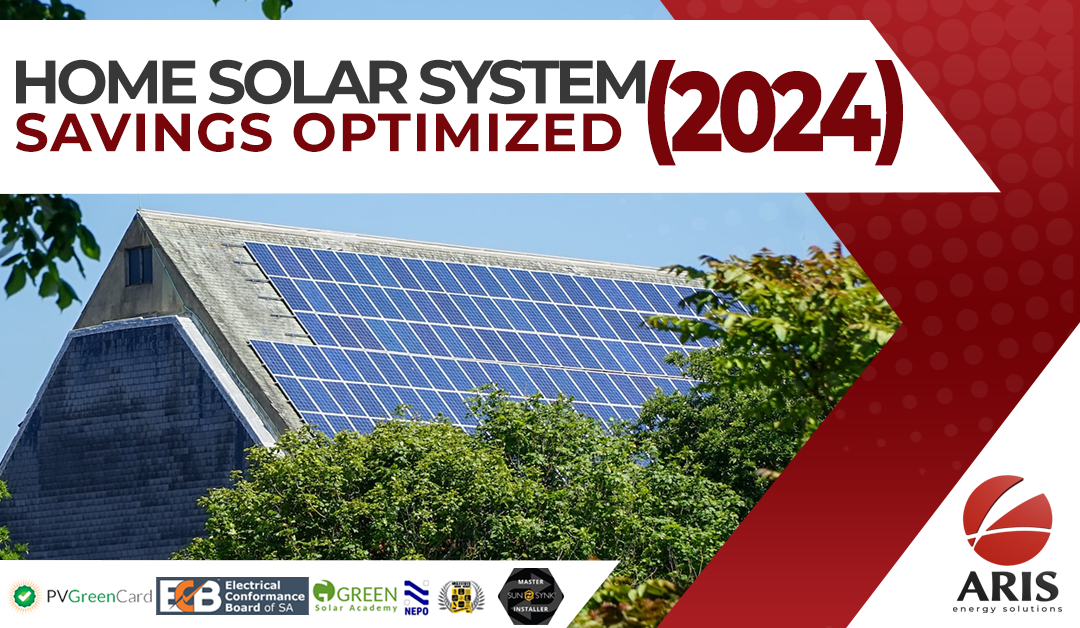In an era where sustainability and cost-efficiency go hand in hand, optimizing your home energy with a solar system is not just a choice; it’s a lifestyle commitment. From altering daily habits to embracing advanced solar systems, every initiative contributes not only to environmental conservation but also to substantial financial savings. Let’s delve into the intricacies of practical tips, solar panel care, battery usage, and the undeniable financial benefits of adopting a home solar system.
Table of Contents
- Financial Benefits of Adopting a Home Solar System
- Further Incentives
- Monitoring and Maintaining Your Home Solar System
- Leveraging Batteries for Optimal Energy Use
- Timing Your Energy Use for Maximum Home Solar Efficiency
- Simple Daily Habits for Energy Efficiency
- Conclusion: A Solar-Powered, Budget-Friendly Home
Financial Benefits of Adopting a Home Solar System
Is It Worth Installing a Solar System in South Africa?
Absolutely! Beyond the environmental benefits, a home solar system adds intrinsic value to your property, significantly reduces carbon emissions, and offers substantial financial savings. With the cost of electricity increasing each year, installing a solar system has never been such a no brainer. It practically pays for itself, while having the added bonus of skipping loadshedding!
The graph below shows how installing solar might seem expensive at first, but save you tons of money in the long run:
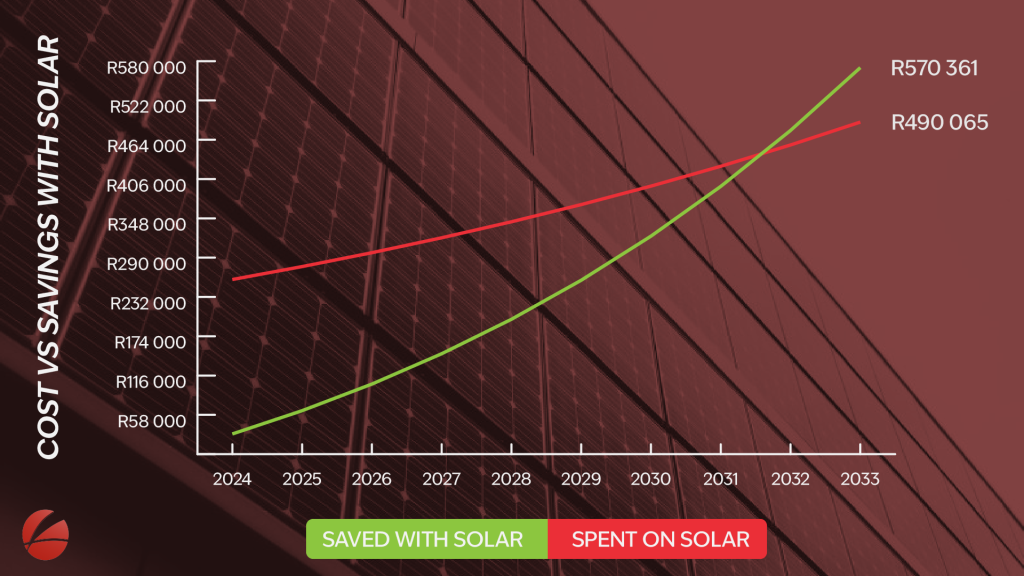
The graph assumes a current electricity bill of R3000 per month. A conservative inflation rate of 7.4% per annum for the next 10 years is used (generally the lifespan of your system before upgrades are required). The green line displays the future value of the cost of installing a R240 000 solar system (which generally saves you around 80% on your electricity bill). The red line displays the future value of the year-on-year savings on your electricity bill.
The solar investment above gives you an 8.9% return per year while also shielding you from power outages. Your system will thus pay for itself within around 8.5 years whereafter the system actually makes you money!
Further Incentives:
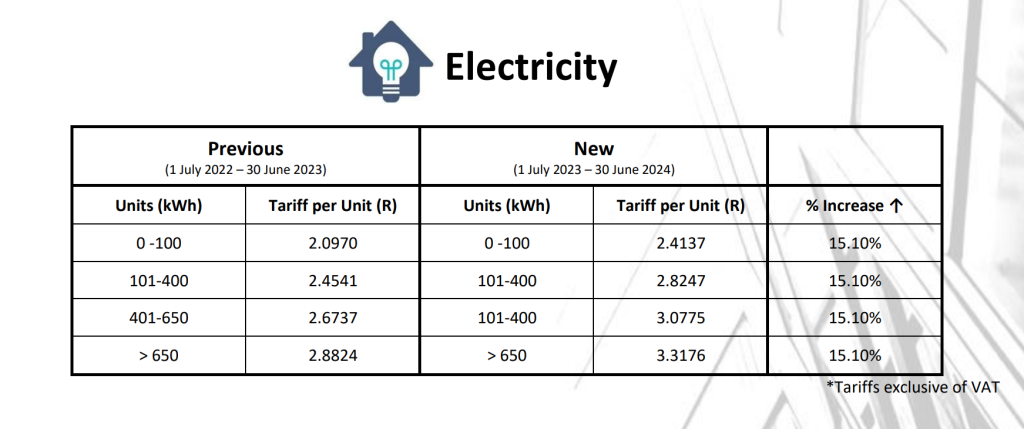
- Reliability: Eskom states that inflation on electricity is around 7.4% per year. However, according to Business Insider, Nersa approved an 18.75% increase in 2023. Additionally, Nersa has already approved another 12.74% increase for April 2024. With a solar system, you know what you are spending and can rely on a fixed, once off investment, shielding you from unexpected electricity price hikes over the next 10 years.
- Tax Credits: Check for available tax credits for solar installations. The South African government provides tax incentives to encourage homeowners to adopt renewable energy solutions, further lowering your initial capital layout.
- Property value: A home with a solar system is more attractive to buyers, increasing the resale value of your property. Sustainable features contribute positively to a home’s market appeal.
- Financing: Given that you do not have the available capital layout for a home solar system, solar providers such as Aris Energy, work closely with financing partners to ease your solar journey with affordable repayment plans. Benefit from financing from as low as R2348 on entry level Sun-Synk systems.
- Grid Independence: Reducing your reliance on the grid by incorporating more energy-efficient technologies and storage solutions such as solar backup batteries. You can opt for partial or complete grid independence for added resilience shielding you from power outages.
- Solar Panel Lifespan: After around 10 years, your batteries lose efficiency, however a large part of your system, such as solar panels can last around 20 years. This means that your next upgrade will have an even lower initial investment.
- Environmental Impact: Beyond the financial considerations, adopting a home solar system contributes to a significant reduction in your carbon footprint. The environmental benefits, such as lower greenhouse gas emissions, contribute to a sustainable future for our planet.
Monitoring and Maintaining Your Home Solar System

Understanding and taking care of your solar system is crucial for maximizing its efficiency:
- Monitoring with Inverters: Most inverters are equipped to monitor electricity production automatically. Make use of the manufacturer’s software app, or display unit to keep track of your system’s performance. Regularly check for software updates to ensure optimal functionality.
- Panel Maintenance: If your panels are mounted at an elevation of over 12 degrees from horizontal, they usually don’t require special maintenance. Rain generally keeps them clean, and a monitoring system alerts you to any potential issues. However, occasional visual inspections should be performed to ensure there’s no debris or shading affecting performance.
- Solar Panel Cleaning: While rain helps keep panels clean, regions with minimal rainfall might benefit from occasional cleaning. Use a soft brush, gentle detergent, and a hose to remove dust and dirt. Avoid abrasive materials that could scratch the panels.
- Tree Trimming: Trim any overhanging branches that may cast shadows on your solar panels. This ensures maximum exposure to sunlight throughout the day.
- Inverter Upgrades: If your home solar system has been in operation for several years, consider checking for inverter upgrades. Newer models may offer improved efficiency and better monitoring capabilities.
- Shade Analysis: Periodically assess your solar panels for any new sources of shading, such as growing trees or neighboring structures. Addressing shading issues promptly ensures consistent energy production.
- Solar Panel Lifespan: While solar panels are durable, they have a lifespan. Keep track of your panels’ age and plan for replacements or upgrades as technology advances.
Leveraging Batteries for Optimal Energy Use
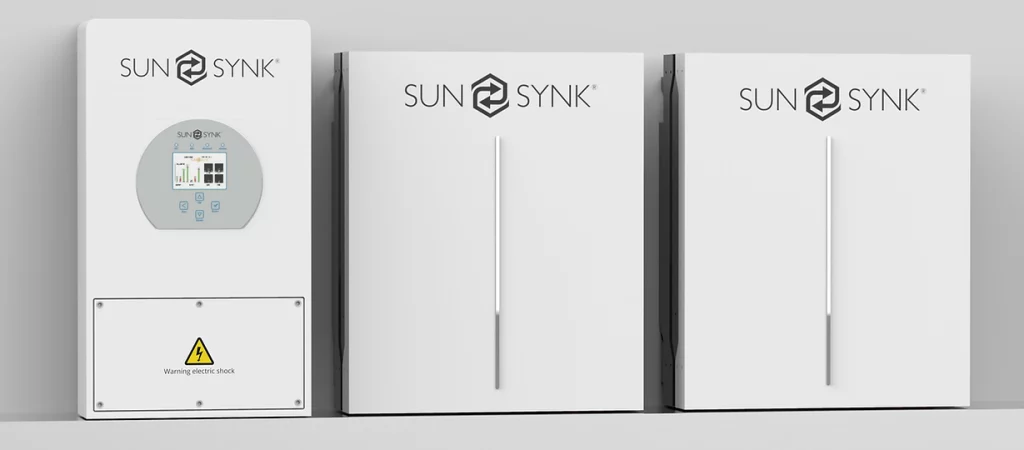
Integrating a battery system with your solar panels enhances efficiency:
- Day-Night Energy Storage: Charge the battery during the day with solar energy and utilize stored electricity in the evening when solar production is lower. Consider a smart energy management system that optimizes battery usage based on your household patterns.
- Battery Sizing: Ensure your battery system is appropriately sized for your household energy needs. Consult with a solar professional to determine the optimal battery capacity for your usage.
- Battery Maintenance: Regularly check the battery health and perform maintenance as recommended by the manufacturer. Proper maintenance extends the lifespan and efficiency of your battery system.
- Battery Lifespan: Batteries have a lifespan measured in “cycles”. If you avoid draining batteries under 50%, their lifespan will be significantly longer.
- Off-Grid Considerations: If you’re in a remote location or simply want to reduce dependence on the grid, explore the feasibility of an off-grid solar system with sufficient battery storage.
- Emergencies and Outages: Adding batteries to your home solar system provides a reliable source of electricity during grid outages. Ensure your battery system is well-maintained to meet emergency electricity needs.
Timing Your Energy Use for Maximum Home Solar Efficiency
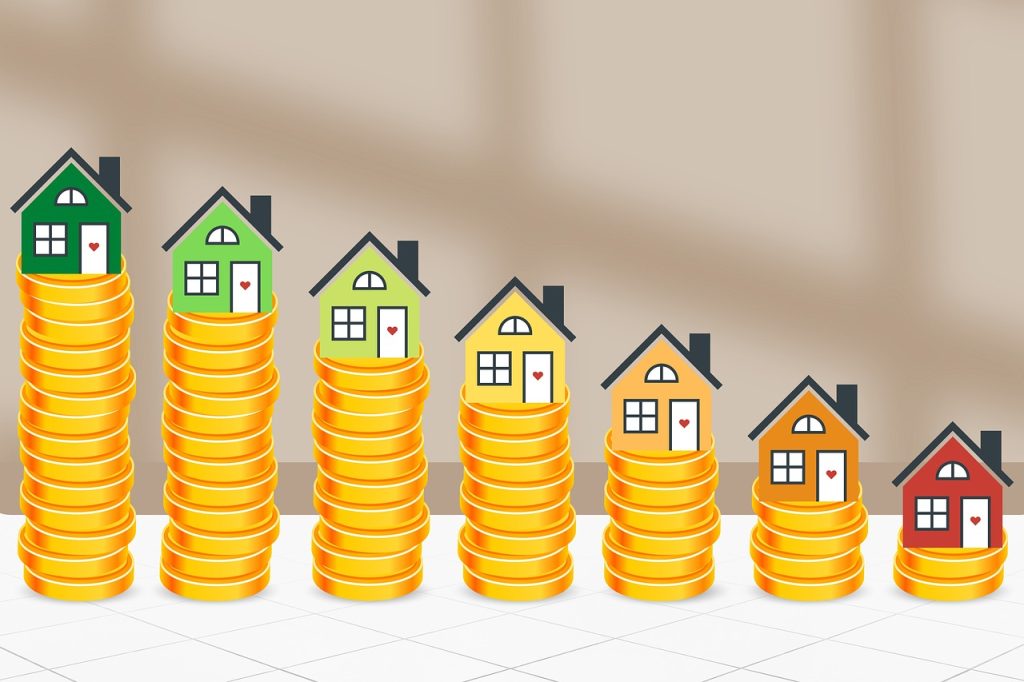
Making the most of your solar panels involves scheduling high-consumption tasks during peak energy production:
- Run High-Consumption Devices During the Day: Coordinate the operation of high-energy devices, such as pool pumps and washing machines, between 10 am and 3 pm when your home solar system energy production is at its peak.
- Geyser Timers: Installing a timer on your geyser ensures it only operates when needed, optimizing energy consumption. Set the timer to align with periods of hot water demand.
- Off-Peak Device Charging: If you have electric vehicles or other devices that require charging, schedule this during off-peak times when energy demand is lower.
- Energy-Efficient Appliances: Invest in energy-efficient appliances that have the ENERGY STAR label. These appliances are designed to consume less energy, contributing to overall energy savings in your home.
- Lights Out: Turning off lights when not in use is a simple habit that goes a long way in energy conservation. Consider using motion sensor lights for areas with infrequent foot traffic.
- Seasonal Adjustments: Be mindful of seasonal changes and adjust your energy consumption habits accordingly. For instance, maximize solar energy utilization during longer daylight hours in summer.
- Energy Audit: Conduct periodic energy audits to identify areas for improvement. Professional energy assessments can provide valuable insights into your home’s energy performance.
Simple Daily Habits for Energy Efficiency
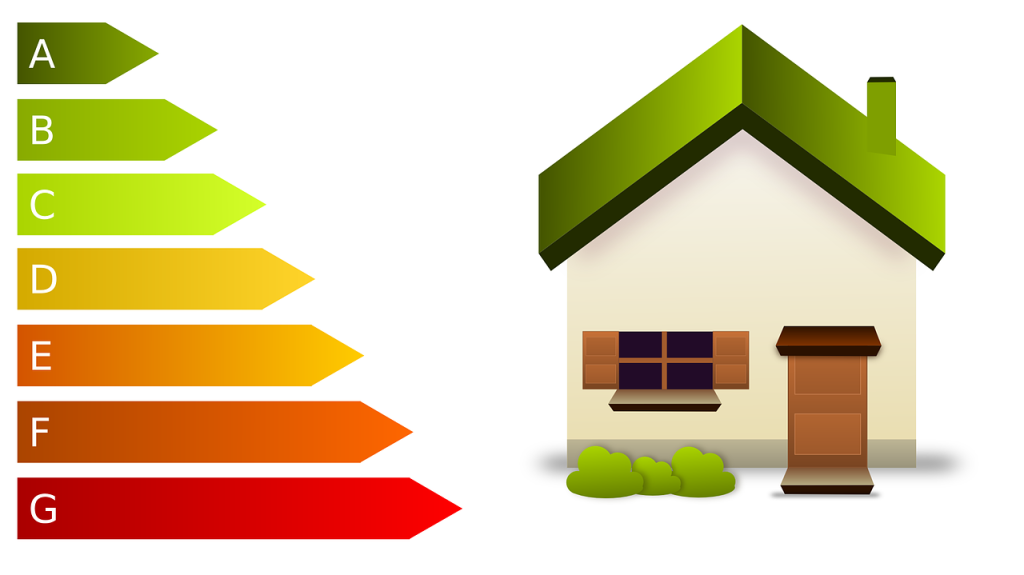
The journey of energy efficiency starts with small, but impactful changes to your daily routine, saving you money and expanding the lifespan of your home solar system:
- Hang Dry Your Clothes: Using your dryer 10 times a month, equates to R 171.20. Consider investing in a outdoor washing line to dry your clothes.
- Adjust Your Geyser’s Heat: Lowering the temperature of your geyser not only reduces electricity consumption but also prevents scalding. A temperature of around 60 degrees Celsius is usually sufficient.
- Smart Plug Savvy: Turn off unused appliances at the wall or make use of smart plugs. Smart plugs can be programmed to turn off at specific times, preventing unnecessary energy usage.
- Pool Pump Strategy: Decreasing pool pump usage, particularly during winter, not only conserves energy but extends the life of the pump.
- Gas Stove: Using your stove for an hour daily, equates to around R 342 per month, not including your oven. Consider opting for a gas stove.
- Ceiling Insulation: Proper insulation keeps your home warmer in winter and cooler in summer, reducing the need for artificial heating and cooling. Limit use of air conditioners or heaters as they cost about R 3,420 per month if used for 10 hours daily.
- Lighting Revolution: The average South-African household pays around R 636.86 per month just for lighting alone. LED bulbs are an excellent choice for energy efficiency and longevity, as they last 3x longer and uses 8 times less energy!
- Shower vs. Bath: Choosing showers over baths not only saves water, but also reduces the energy required to heat it. Consider installing a low-flow showerhead for additional water savings.
Conclusion: A Solar-Powered, Budget-Friendly Home
Optimizing your home energy isn’t just about following a trend; it’s a commitment to financial savings and environmental responsibility. From simple daily habits to embracing an advanced home solar system, each effort contributes to a more sustainable, and cost-effective home.
Let the sun be your partner in creating a brighter, budget-friendly future that benefits both your wallet and the planet. As you embark on this energy-efficient journey, remember that every action, no matter how small, brings you closer to a more sustainable and economically sound lifestyle.

